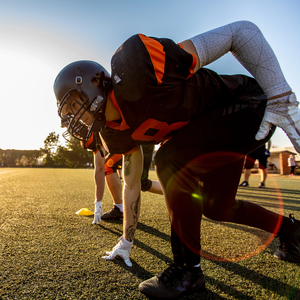Concussion Management
The orthopedic and sports medicine team at Bellin Health knows how important it is to take care of concussions. We have a group of different specialists who work together to help manage concussions.
Our experienced providers diagnose and treat concussions. They partner with our brain specialists and other healthcare providers to make sure each patient gets the right care. If an accident occurs, our emergency room is readily available to provide immediate evaluation and treatment.
Experts in physical therapy also play a significant role in helping people recover. They collaborate with providers to develop personalized treatment plans that aim to restore strength, balance and coordination.
Concussion Symptoms
A concussion happens either through a direct blow to the head, or from a significant whiplash injury. This can lead to symptoms including:
- Altered sleep patterns
- Amnesia
- Confusion
- Decreased tolerance to physical exertion
- Decreased tolerance to cognitive exertion
- Dizziness
- Fatigue
- Headache
- Irritability
- Limited tolerance to light
- Limited tolerance to noise
- Nausea/vomiting
Symptoms, their intensity and their duration can be variable depending on the patient. Patients with multiple concussions may experience more severe and longer-lasting symptoms. This is even more likely if the patient sustains a second concussion and they haven't recovered from the first one yet.
Concussion symptoms usually resolve in 1-3 weeks but can persist longer. Initial treatment focuses on rest and reduction of symptomatic activities or stimuli. Return to school, return to work and return to sport considerations are important through recovery to ensure smooth and optimal recovery. Excessive activity, whether cognitive or physical, that occurs before brain healing is complete can cause a longer recovery.
Concussion Diagnosis
Concussion diagnosis is usually done by checking symptoms during a clinical exam. Tests like ImPACT or SCAT can help diagnose concussion, but they should be used along with a clinical exam.
CT scans or MRIs are sometimes performed to check for serious injuries such as brain bleeding. However, these scans often show normal results. This is beneficial in ruling out conditions like subdural or epidural hematoma.
Testing protocols can also be done to ensure recovery from concussion. This battery of tests often includes cognitive challenges and return to play physical testing to ensure safety to return to sport.
Concussion Prevention
Prevention is always better than cure, which is why we offer baseline testing using ImPACT. This allows us to establish a pre-injury cognitive and neurocognitive profile for your child. After a concussion, we can compare their test results after the injury to their initial results. This allows us to accurately assess their recovery progress.
Our ultimate goal is to ensure the safe return of your son or daughter to their sport. From the day of injury to the day of release, our team will be there every step of the way, providing the necessary care and support. We know concussions can affect young athletes' lives, and we're dedicated to helping them fully and safely recover.
